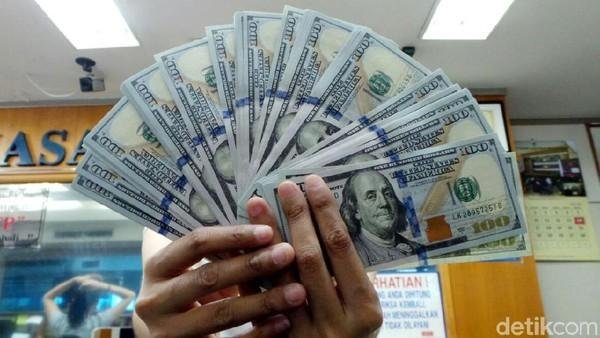 cu
cu
The sentiment of the global still continues to hit the financial markets a number of developing countries, including Indonesia during April-May 2018. Macro-economic conditions RI are still healthy?
The rupiah currency has weakened of 2.99% since the beginning of the year (ytd) against the United States dollar (U.S.), or at the level of 13.960 at the end of the week (11/5) ago. Follow the movement of the rupiah, composite Stock Price Index (CSPI) fell to 6.28% (ytd) or at the level of 5.956,83. Even so, Indonesia Composite Bond Index (ICBI), which fell 1.73 percent (ytd).
PT Bahana TCW Investment Management see the weakening that occurs at the exchange rate of the rupiah against the U.S. dollar tends to be caused from external factors and not from within the country, both fiscal and monetary policies.
"In terms of fiscal, whether it's income, expenditure, and financing show a good number. Bank Indonesia also intervened with the release of foreign exchange up to US$ 7 billion. It shows the BI policy that take into account factors of stabilization and growth, so that the reached in the policy mix (the policy mix)," said the Director of Strategy and Head of the Macroeconomic Bahana TCW Investment Management Budi Hikmat in a written statement, Tuesday (15/5/2018).
According to Budi, the problems that now afflict the rupiah is external sentiment, be it from Government stimulus AS Donald Trump which cut corporation tax, so that the chance for the U.S. central bank (The Fed) to raise interest rates. In addition, the U.S. dollar strengthened and turned in the direction of the (unwind position) almost against a number of foreign currency exchange rates.
Budi added that the rupiah is not the only currency that weakened against the U.S. dollar.
"We see the public need to educated response to the weakening of the rupiah. Globally, the correction of the rupiah is not too deep compared to other emerging market currencies. Macroeconomic management in Argentina is the lack of good underlying the correction of the exchange rate and increase interest rates the highest in the world. For example, the currency of Argentina Pesso fell to 24.6% (ytd), Philippines Peso fell to 4.93% (ytd), Indian Rupee weakened 5,42% (ytd), Brazil's currency weakened 8,69% (ytd)," said Budi.
Meanwhile, world oil prices continue to soar, come with trigger deficit of oil imports in the first quarter of 2018. The rise in oil prices has triggered a deficit in oil rose by 13% (yoy) compared to the quarter one year ago.
Meanwhile, the trade balance of Indonesia in the same quarter posted a surplus of US$ 280 million, down significantly up to 93% compared to the same quarter last year with a surplus by 4.08 billion.
The weakening of the rupiah is also influenced by the needs of the foreign exchange collected by the corporation as payment of dividends to a foreign country. The pattern of dividend payment in the form of foreign exchange, which is common in quarter two has led to the rupiah depressed.